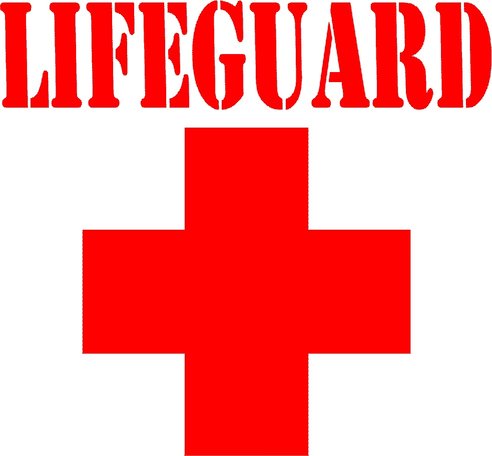
Mike
Sandusky, OH
Male, 20
I worked at an extremely busy water park for about two years straight and a summer camp as a beach lifeguard. Working at a water park operating 365 days a year as well as on a beach, I've seen my fair share of interesting scenarios. I've been the good guy with the band-aid, and the bad guy who yells at your kids (for good reason trust me). I'll do my best to answer any questions you have.
Well that really depends on the facility. Most facilities I've been to do a very good job at keeping up sanitation standards. As long as the chemical and PH levels are kept in check, it's usually very safe. Now on the other hand, yes they can be disgusting and full of various bodily fluids, not necessarily all from children. Disgusting I know. Essentially, if it looks and smells clean, then it probably is. Emphasis on probably. Cleaning standards can range anywhere from straining any solid matter out to completely draining and re-filling. Really you just have to make the decision for yourself but 90 times out of 100, swimming pools are very clean.
Thankfully I never had to preform CPR on anyone. Mouth to mouth is also an outdated practice. Currently, most institutions teach not to give airway ventilation a unless proper protective equipment is available. Which is why every single lifeguard that I've ever worked with always carries a CPR mask on their person while on duty to make sure they can give ventilating breathes if that situation ever occurs. As for the second part of your question, very rarely do these situations ever occur, and even more rarely because of drowning. The only scenario that required CPR while I was on duty was a heart attack, and because of emergency protocols, I was assigned to another task not involving the CPR because I was not one of the first responders.
People did often lie on their stomachs in the water, but mostly because it was comfortable for them. Usually not a big deal, we would normally just get their attention and tell them what they were doing and ask them if they would stop. Every once in a while, there would be one or two kids that would try to "fool" us. That really doesn't sit well with the guards. Because we were so busy, most of us took our jobs very seriously due to the fact that people did have to be rescued fairly often.So although it was rare, yes kids did try to "fool" us.
Ha, well as much as I wish it was, no it wasn't. Most of the guards I worked with were too young to get the references, and the guests never talked to us very much.
Dating Website Employee
 How does a dating site get its first 10,000 customers?
How does a dating site get its first 10,000 customers?
Parcel Delivery Mailman
 Does labeling a package "fragile" actually lead to you handling it with more care?
Does labeling a package "fragile" actually lead to you handling it with more care?
Call Center Representative
 What is the meanest thing a caller has ever said to you?
What is the meanest thing a caller has ever said to you?
About 90 percent of our operation was all indoors. Kept at a steamy 80 Fahrenheit all through the winter. There are a lot of indoor water parks in the Northern Ohio area.
In addition to my water park experience, I have also worked as an open water lifeguard at a summer camp that did have a beach. The main difference between the two is the specialized training added on to your basic lifeguard training. For instance, while you might be trained to operate different slides or attractions at a water park, as an open water lifeguard, you'll focus more on using different tools like ropes or body boards for rescues. As an open water lifeguard, you'll also have to focus more on the scanning and zone work and you may be required to take on more medical responsibility as well because you may not have a dedicated medical staff that you might have at a larger water park.
Well no one I've ever worked with has, but I would assume it would be for sun protection.
Lifeguard tests differ depending on the facility. For example, I've been certified as a lifeguard through the Red Cross, Ellis and Associates, and the Boy Scouts of America, and all have slightly different standards. While all three have a strong focus on CPR and first aid, the three different institutions have slightly different rescue methods. The common ground in the three is that there is usually a timed and endurance based swimming requirement.
Absolutely, more than once myself and other lifeguards have been dragged down by swimmers in distress. When someone is drowning, they'll do anything in their power to save themselves in a panic. I'm a pretty big guy and a good swimmer so I was normally never in real danger, but most guards are not as big as me. Because of the danger, it was policy for us at the water park to respond to any incident if we weren't already in a position. Often times those extra people were used in the rescue somehow.
That really depends on the situation, but it is very possible that lifeguards can be held legally liable for their actions. Especially if negligence on the part of the guard can be proven. This is one of the main reasons why I took my job so seriously.
No, I don't think relationships in the workplace are a good idea. It never seems to end well.
1. That depends on the size and location if the object. Tweezers or credit cards will take care of things like splinters or bee stings. If the object is larger or in the eye, I would suggest seeking medical attention other than a lifeguard or basic first aid.
2. Try picking up a Boy Scout handbook. I'm fairly familiar with them because I'm an Eagle Scout and there is a ton of great basic first aid information.
3. Absolutely, modern emergency AED's are designed to be used by people who are not medical professionals. Follow the diagrams on the patches of the AED and once you turn it on it will walk you through the use via a voice recording inside the AED.
4. In my water park, the most common emergencies were what we called "guests in distress". Basically people who couldn't swim but thought they could and needed assistance.
I hope I've been helpful. If you have any more questions feel free to ask.
1. I would say the best thing to avoid when administering first aid would be panic. Often times emergencies can be adrenaline fueled events but like most things if you're calm and confident in your training you'll do fine.
2. Something to strongly execute would be remembering to protect yourself as well as the person in need of first aid. Often times the first step in training to administer first aid in an emergency is to make sure that "the scene is safe". The reason for that is to make sure you don't end up with two victims instead of one. Additionally, proper protective equipment can also be used mainly gloves, or pocket CPR masks in the case of lifeguards, to protect yourself.
3. The best advice I could give to someone who hasn't been trained in first aid in an emergency would be to keep calm and find help.
Well first of all, I've never heard anyone say to just go limp when being carried by a current so I can't specifically answer your question.
What I can tell you is that there are basically two different types of currents that plague swimmers; the rip current, and the undertow. Rip currents are most common and usually occur in a lake or ocean with moderately heavy waves. These currents will pull you out further to sea and you should swim parallel with the shore until you've escaped the current and can swim back to shore. Undertows, although they may sound more dangerous, are usually fairly mild and only are a problem for inexperienced swimmers. Undertows occur in the same setting as rip tides but they will pull a swimmer under the water for a few seconds. In these scenarios, it is best to remain calm while swimming toward the surface.
It definitely taught me to trust other people. During busy days it is absolutely crucial to rely on the other guards around you to scan their respective zones of the pool. One person can't watch everyone at a large pool operating at capacity. It has taught me not to judge a person based on how they look, I can remember having to rescue some huge guys that just seeing them, you would assume that they knew how to swim. It also taught me tact, I learned when to be jovial and extremely nice to a resort guest, and when you have to be stern and forceful to get a point across. Overall, yeah, I'd say it made me a better person in general.
If anything it was the water park guards that had a superiority complex due to the amount of rescue activity we would see. While an open water guard might have 4 or 5 rescues in their entire career, it was not uncommon to have 5-10 rescues a day in the water park depending on your position for the day.
Wendy Peffercorn from The Sandlot is the first one that comes to mind, although I'll have to take points off for not checking for a pulse or breathing before starting CPR. Other than that I've got to go with Baywatch.
Personally, no, I did not become a lifeguard to pick up chicks. I became one out of living by the water and enjoying aquatics related activities. On the other hand, I do know some who did, and long story shortyes, it does work.
The training will vary slightly based on the organization doing the training. Like I've said before, I've done guard training through three different organizations but they're all pretty similar. There is a lot of classroom instruction covering various medical topics as well as some in-water training that covers different rescues and what not. The written tests are all pretty easy. If you pay attention in training it's really easy and most of the questions are common sense regardless. The hardest tests for me to pass were the timed swimming events. As long as you're a strong swimmer you'll be fine with those.
I would suggest swimming as much as possible to increase your skills. You can try swimming timed laps in order to keep track of your improvement. Look up the swimming tests needed to earn a certification and practice those tasks. Swim 300 to 400 yards continuously, dive to depths of 7 to 10 feet to recover a 10 pound item, tread water for as long as possibly using just your legs.
As a lifeguard, I was given a discount on any retail or food shops in the resort I worked for, but that was given to all employees of the resort, not exclusively to lifeguards.
That would be completely frowned upon. You're there to watch the water and make sure no one gets hurt. Water parks will often have music playing though.
For the brick: make sure when you come back up with the brick, lie on your back and keep the brick on your chest. You should be able to float with the brick while swimming with your legs.
For the underwater swim: try not to be too nervous, getting nervous can increase your heart rate making your body use more oxygen.
Ultimately just do your best. For the most part, instructors don't want you to fail because a lot of failing students makes them look bad. They'll usually help you out as much as they can.
Frankly, I'm not too familiar about shark protocol being from Ohio and all, but it could be something to do with a legal time limit. Somewhat like the law in Ohio that states that any water attraction has to remain closed for 30 minutes after a thunder/lightning strike.
Usually swimming alone wasn't a problem. People with disabilities that might hinder their swimming ability generally have someone with them that can help and are aware of that person's limitations. Slides however, do have weight limits that may or may not be enforced depending upon the lifeguard. In those situations in which weight was a factor, lifeguards were instructed to essentially tell the guest that they were too fat to ride without actually telling them that they were too fat to ride.
Generally, if a person has an issue that would cause a safety concern, lifeguards will tell you.
Just like in most other job fields, opportunity for promotion becomes higher at larger workplaces. At the water park I was at, you could usually work hard and apply for a "head guard" sort of position after 8-10 months when an opening came up. That was the most common promotion for us although there were 3-4 levels of supervision/management above the regular lifeguards. So long story short, yes, there are usually promotion opportunities at larger guarding establishments.
Technology that lifeguards use has definitely been improved from the days of life rings. The most important advance in my mind is the upgrade in first aid technology, constant training and development of pocket CPR masks alone is a major advantage. Every lifeguard now carries one and is trained in its use. Other than that, lifesaving equipment is really just something that floats. We could use life rings although they are fairly outdated. We generally favor the long tubes that have nylon straps that attach to our bodies. Other than that, there wasn't much else we carried.
To be completely honest, I'm no expert in workouts so this question may be better directed toward someone else, but my best advice would be to swim as much as possible. It works out multiple muscle groups and really helps endurance.
In my experience, the only people who would lifeguard as a career were the managers and supervisors in large water parks and the lifeguards who guard at ocean front beaches with dangerous waves. Everyone else was usually a teen or someone who needed a temporary job. In my opinion, the skill of the lifeguard would depend more on the maturity of the individual instead of their age. Some of the best guards I've ever worked with were 15 and 16 year old kids, while I've guarded with adults with maturity levels of 13 year old's who would be fired within a month of starting the job.
That depends on how fast you swim. Try having someone time you when you practice, but keep in mind that you'll be using oxygen more quickly when exerting yourself while swimming underwater. I can't really help with recommending breathing exercises. I played an instrument and that helped me with lung endurance. Also, I believe that most requirements are 10 feet of depth unless your certification specifies otherwise.
I would definitely say that lifeguards are on the bottom of the lifesaving food chain. Compared to the skills and knowledge of EMT's and other medical professionals, lifeguards do very little. As for the competition, there are really no others that do similar tasks to lifeguards. If anything, there is more dislike toward groups of employees in the resort by the lifeguards such as the cleaning staff. Lifeguards tend to do a lot of cleaning and can therefore have a dislike towards dedicated cleaning staff. Other than that, the lifeguards tend to compete between themselves.
Sure, it doesn't happen often, but it does happen. It's already fairly difficult to rescue someone in the first place, if a lifeguard is small statured and has to rescue a large victim, it can be extremely difficult. There are hand and whistle signals that lifeguards learn to signal other guards for assistance if in the water. Even experienced lifeguards might have to try multiple times to get a successful rescue if the person is in an extreme panic.
That depends on the level of certification you need. If you're trying to get deep water (more than six feet of water I believe) or open water certified, the tests could be very difficult for someone who isn't good at swimming. In order to be deep water certified with the American Red Cross, you need to be able to swim 300 yards continuously, tread water for 2 minutes using only your legs, and be able to complete a timed event (swim 20 yards, dive to a depth of 7 to 10 feet to recover a 10 pound object, swim 20 yards back to the starting point) in under 1 minute 40 seconds. Keep in mind that you'll have to be swimming for two or more people in the event you have to rescue someone. There are shallow water certifications however, that have less strict requirements yet still give you the chance to be a lifeguard.
If there are multiple unconscious victims and you're the only person that can help, I think you might have some bigger problems. I would suggest immediately contacting police and fire to get the people that are trained to handle that type of situation and proceed to do my best to help the victims according to my training and skill level. As for your second question, if you're trained in cpr but someone else is not, I would tell that person specifically to immediately call for help and start performing cpr how I was trained.
I'm not a doctor, emt, or other type of medical professional, so I'm not going to pretend that I am. Lifeguards are trained to handle basic rescue and first aid situations.
Not personally. As I mentioned in an earlier question, I became a lifeguard because I love being around water and because honestly, who wouldn't love wearing shorts and a t-shirt to work year round. I think there are probably bad eggs in all professions but lifeguards generally don't do their jobs because of some skewed sense of authority. I can however understand how it might seem that way because of the occasional shouting, whistles, and stern looks. I challenge you to try to enforce the same rules that people might not understand are for their safety hundreds of times a day and try to remain cheery when someone ignores you. I found myself getting angry occasionally because it seemed as if I was repeating the same things to the same person all day. In retrospect I understand that this thought was completely irrational, but when the thoughts of negligence lawsuits are pounded into your brain in training, lifeguards will tend to take any means necessary to keep swimmers safe. Including what may seem rude to a swimmer, but necessary to get the point across to a lifeguard.
If you're talking about when working as a lifeguard, all rescue equipment should be approved by either the US Coast Guard or the agency that is responsible for training the lifeguards. There is approved throwable rescue equipment available for these types of situations.
My advice would be to just keep practicing as much as you can and to not give up. Ask for help from your instructors so they can give you more tips and encouragement as you go. Maybe try some breathing exercises or exercise more to really work out your lungs. Usually, if you can't get the brick in your first try, you can keep trying as long as you're in the time limit.
My suggestion would be to just keep practicing with the brick. You're on the swim team and a good swimmer, just keep practicing. If it's the speed portion, try getting as fast as possible at your backstroke with just your legs. If it's holding the brick up, just do your best to keep the brick on your chest and your head above water.
-OR-
 Login with Facebook
Login with Facebook (max 20 characters - letters, numbers, and underscores only. Note that your username is private, and you have the option to choose an alias when asking questions or hosting a Q&A.)
(A valid e-mail address is required. Your e-mail will not be shared with anyone.)
(min 5 characters)
By checking this box, you acknowledge that you have read and agree to Jobstr.com’s Terms and Privacy Policy.
-OR-
 Register with Facebook
Register with Facebook(Don't worry: you'll be able to choose an alias when asking questions or hosting a Q&A.)